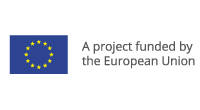Climate action updates from the south Mediterranean region

A series of interviews with National Focal Points (NFPs) of the ClimaSouth project is now online. The main focus of the recently recorded interviews is on the Nationally Determined Contributions (NDC) process in each of the partners countries. New interviews were recorded for Algeria, Egypt, Jordan, Lebanon and Palestine, while for Israel, Libya and Morocco previously recorded interviews are available on the ClimaSouth web site. The topics discussed include what is being done to initiate the process of mitigating greenhouse gas (GHG) emissions and how targets set out in the various countries are likely to be achieved. The interviews also cover specific measures being implemented to enhance resilience to climate change and adapt to its present and future impacts. Finally, international partnerships are also discussed, and going forward, how these could be further enhanced to assist with the future implementation of climate action in each partner country.
A useful update on the key positions on climate action by partner countries in the south Mediterranean region. Ghalia Benziouche, from the Ministry of Foreign Affairs, stresses that "Algeria, was among the first countries to sign and ratify the Paris agreement. Strongly affected by the adverse impacts of climate change, Algeria, has submitted an ambitious Nationally Determined Contribution (NDC) to the global efforts of fighting climate change. Depending on the international support to be received, this (NDC) aims to reduce the Country’s GHG emissions by 7% to 22 % by 2030. This will be accomplished in various ways and by a number of actions including the generation of 22,000 MW of electricity from renewable energy sources”. Nadia Elmasry, from the Ministry of Environment, Egypt, underlines that climate action in the country focuses on adaptation, while mitigation actions remain conditional on the availability of international financing for their implementation. Egypt contributes less than 1% to global emissions but is one of the countries most affected by climate change. Similarly, Sarah Alhaleeq, from the Ministry of Environment, Jordan, highlights that the country has committed to a 14% reduction in emissions, but only 1.5% is unconditional while the remaining 12.5% is conditional on the country successfully obtaining international financing. Yara Daou, from the Ministry of Environment, Lebanon, describes how the NDC process has been able to gather all key climate actors around the table, allowing for the development of a national strategy endorsed by all line ministries. Lebanon has committed to a 15% unconditional reduction in GHG emissions by 2030, with the possibility of raising the target to 30% if climate finance is made available. Nedal Katbeh Bader from the Environmental Quality Authority in Palestine, stressed that although adaption is the main focus of climate action, two mitigation scenarios have been developed. The first features a 12% reduction in GHG emissions by 2040, while the second, associated with an end of conflict and occupation in Palestine, would allow for a doubling of the projected target to 24%.
Broad objectives and key work areas of the ClimaSouth project reviewed both in mitigation and adaptation. “One big area of work to be pursued is the continued support towards climate finance, making sure that the significant amount of money available is captured by partner countries”, says Bernardo Sala, team leader of the ClimaSouth project, in a further interview now available online. He adds that it is important that climate change should move out of the Minister’s chamber. The political willingness for this to happen should emanate from the highest possible level so that ministries may exchange data and lessons learned, allowing relevant experiences to be spread, replicated and up-scaled within the country and across the region.
Latest interviews: Algeria | Egypt | Jordan | Lebanon | Palestine | ClimaSouth team leader



